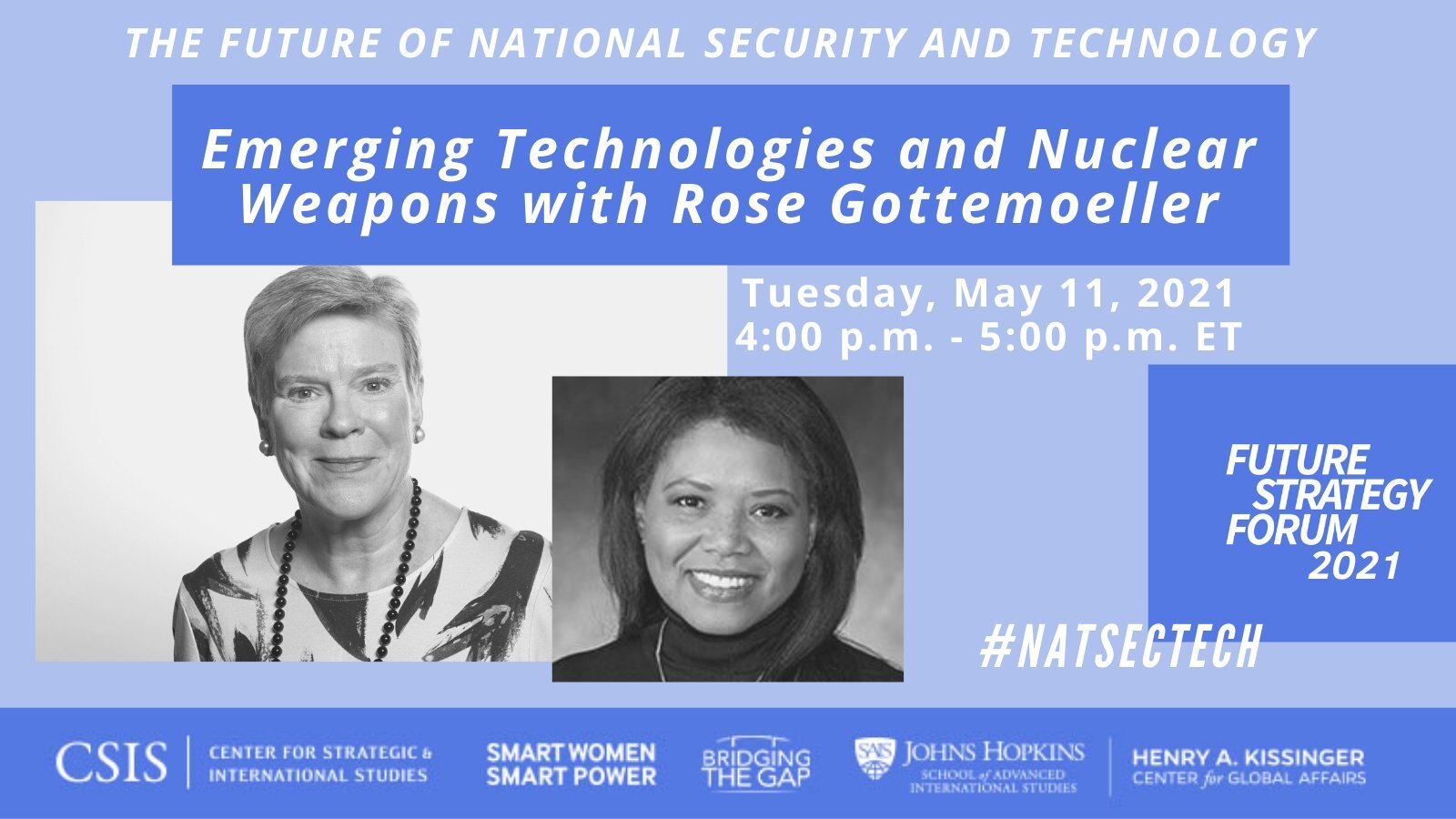
FSF 2021: The Future of National Security and Technology
The CSIS Smart Women, Smart Power Initiative, the Henry A. Kissinger Center for Global Affairs at Johns Hopkins SAIS, and Bridging the Gap are pleased to host the 2021 Future Strategy Forum, an initiative to connect scholars who research national security with its leading practitioners.
Future Strategy Forum: National Security and Technology will feature a virtual closing keynote discussion with Rose Gottemoeller on May 11, 2021, in addition to three panels over three days exploring national security and technology, and a war game with Hoover Institution’s Dr. Jacquelyn Schneider.






Day 1
Opening Keynote: Anne Neuberger
Panel 1: Emerging Technologies and Warfighting
Evanna Hu, CEO and Partner, Omelas
Dr. Nina Kollars, Associate Professor, U.S. Naval War College
Dr. Ulrike Franke, Senior Policy Fellow, European Council on Foreign Relations
Julie George, PhD Candidate, Cornell University
Moderator: Sara Plana, PhD Student, Massachusetts Institute of Technology
Day 2
Panel 2: Emerging Technologies and Statecraft
Camille Stewart, Head of Security Policy, Google Play & Android, Google
Ginny Badanes, Director of Strategic Projects, Cybersecurity and Democracy, Microsoft
Christie Lawrence, Director, Research and Analysis, National Commission on Artificial Intelligence
Sanne Verschuren, PhD Candidate, Brown University
Moderator: Suzanne Spaulding, Senior Adviser, Homeland Security, International Security Program
Panel 3: Janne Nolan Prize Winners: Technology on Changing IR Landscape
Saher Naumaan, Principal Threat Intelligence Analyst, BAE Systems Applied Intelligence
Dr. John Emery, Stanton Nuclear Security Fellow, Center for International Security and Cooperation, Stanford University
Dr. Jane Vaynman, Assistant Professor, Temple University
Moderator: Rachel Tecott, PhD Candidate at MIT
Concluding Keynote with Rose Gottemoeller
International Crisis War Game
May 12, 2021 | 1:00pm-4:00pm
As part of this year’s forum, Dr. Jacquelyn Schneider, assisted by Ms. Rachael Shaffer and Mr. Benjamin Schechter, hosted a virtual war game.
The war game explored the relationship between new technologies, domestic politics, conventional military capabilities, and nuclear threats. Players simulated decisionmaking roles in a national security cabinet and came to the war game as leaders in private industry, government, academia, and the military. The aim is to better understand the role that emerging technologies play in crisis decisionmaking and how Cold War paradigms of deterrence and crisis escalation apply in a world with new capabilities and vulnerabilities.
